It’s no secret that contact centers broadly face higher attrition rates, with turnover rates historically averaging between 25% and 40%. The past year has brought attrition rates into even greater scrutiny as the U.S. economy continues to grapple with unusually high resignation rates. We surveyed over 2000 contact center workers across all spectrums to help understand what makes them stay in a job versus what makes them leave.
Total respondents included 1342 front-line workers and 720 leadership roles.
These findings are part of our series on agent attrition in today’s contact centers. Check out our full report here.
Subscribe to future Conversation Excellence Lab reports below:
Our Key Findings
- Contact center workers are overwhelmingly motivated by their pay, regardless of age, gender, ethnicity, industry, job function, education, or tenure.
- Salaried workers are more likely to be motivated by factors other than pay.
- While men, women, and non-binary workers all listed pay as the primary motivating factor, men were more likely to list promotions while women were more likely to list coworkers/management.
- As workers’ age increases, they are less motivated by pay and more motivated by other factors — and more likely to stay in their current position.
- The more education a worker has obtained, the less they are motivated by pay. Conversely, workers with higher education are more likely to view promotions as motivating factors.
Click here to subscribe to future Conversation Excellence Lab reports.
1. Contact Center Workers Are Overwhelmingly Influenced by Their Pay
We asked workers two questions: “What, if anything, would make you want to stay at your current contact center?” and “What, if anything, would make you switch jobs?” Workers were asked to provide only one answer to both questions.
Across all age groups, workers overwhelmingly chose Pay as the primary motivation, totaling 51% and 59% respectively. The next closest answer to each question, Everything and Nothing, only totaled 11% and 15% respectively (Note: “Everything” indicates the respondent felt they had every reason to either stay or leave in their current position. “Nothing” indicates the respondent has no reason to stay or leave.)
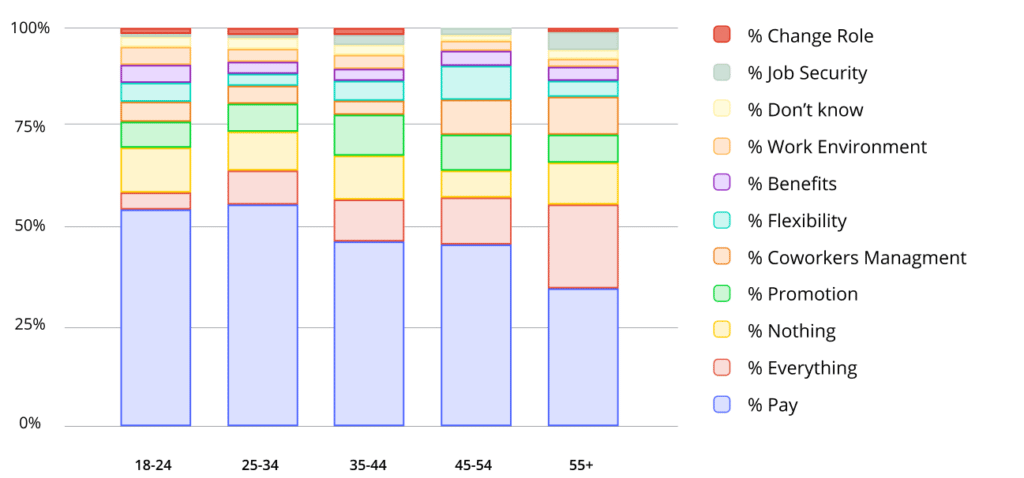
Figure 1: Reason to Stay by Age Group
Pay was also the majority answer across all industries.
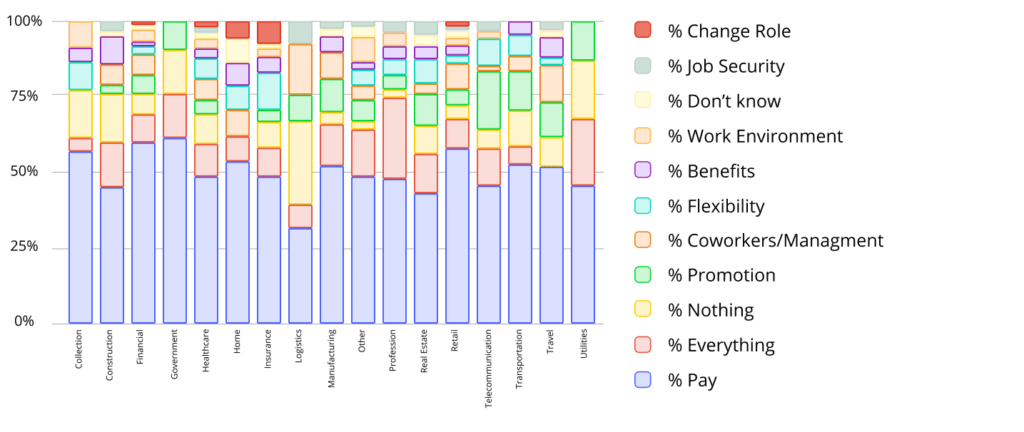
Figure 2: Reason to Stay by Industry
This trend stays relatively constant across all demographics, with one notable exception: Generally speaking, higher-paid workers are motivated by pay at a lower percentage, suggesting they are more motivated by opportunities to improve their skills or advance their careers.
These answers strongly suggest that while non-financial motivations are important to workers, the vast majority are primarily concerned with their financial security. Any other factors are secondary, with varying degrees between different groups.
2. Salaried Workers Are More Likely to List Other Factors as Important
While both hourly and salaried workers are primarily motivated by their pay, salaried workers were more likely to be influenced by other factors. When asked what would make them stay or leave their position, hourly workers responded “Pay” 54% and 62%, respectively. Salaried workers responded “Pay” 38% and 47% respectively.
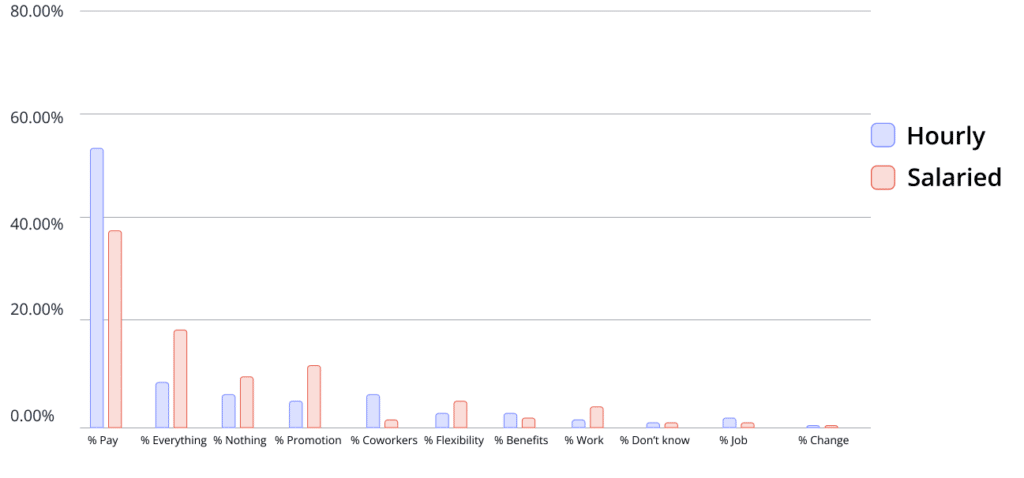
Figure 3: Reason to Stay by Whether an Employee is Hourly or Salaried
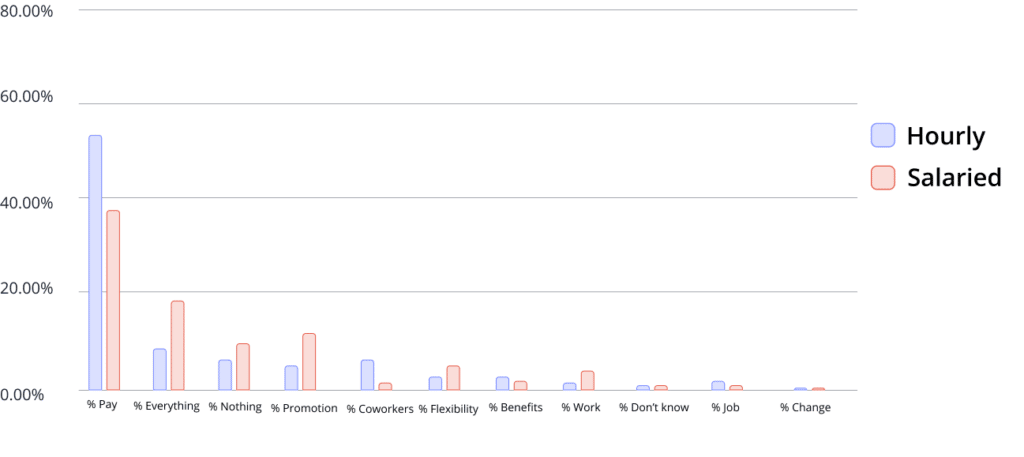
Figure 4: Reason to Leave and Whether an Employee is Hourly or Salaried
Salaried workers, when asked what would encourage them to stay in their current positions, were more likely to respond “Everything” (where they have no reason to leave their position) and “Promotion,” at 17% and 13% respectively. When asked what would encourage them to leave their positions, 26% said “Nothing.”
3. Workers’ Gender Impacts Secondary Motivating Factors
While men, women, and non-binary workers all listed pay as the primary motivating factor, each group’s secondary motivating factors varied:
- When asked what would keep them in their current positions, men were more likely to list “Everything” and “Promotions” at 13% and 11% respectively. 18% of men responded that “Nothing” would encourage them to leave their current position.
- When asked what would keep them in their current positions, “Pay” was the dominant response for women, with no other factor reaching 10%. Women were slightly more likely to say “Nothing” would encourage them to leave their position, at 13%.
- Non-binary workers overwhelmingly listed “Pay” for why they would stay or leave, at 75% and 67% respectively. No other responses constituted a notable percentage.
4. Older Workers Are Less Motivated by Pay, More Likely to Stay in Their Position
Pay is the primary motivating factor for all age groups, but less so among older workers. The two youngest age groups, 18-24 and 25-34, each listed “Pay” as their primary motivation to stay in their role by 55% and 56%. After that, the percentage drops: 35-44 year-olds answered “Pay” at 49%, 45-54 year-olds at 47%, and 55+ year-olds at 40%.
When asked what would encourage them to leave their position, all age groups under 55 answered “Pay” at roughly 60%. Meanwhile, 55+ year-olds only responded with “Pay” 48% of the time.
Additionally, as workers’ age increases, they are more likely to want to stay in their current position. The percentage of respondents who claimed “Nothing” would make them switch jobs increases alongside age:
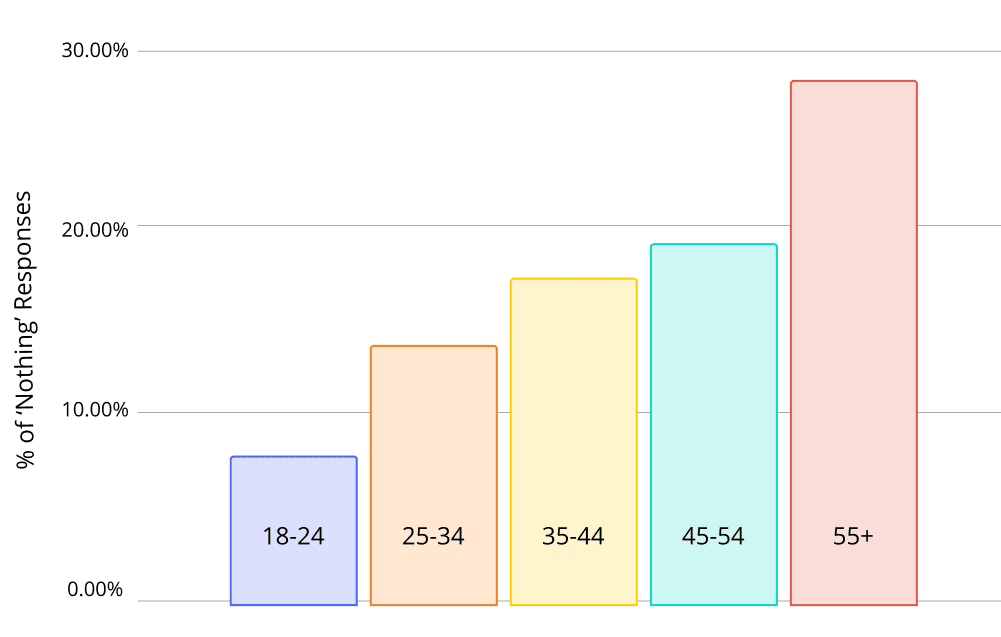
Figure 5: Likelihood of Staying in Current Position by Age Group
This could suggest that as workers come closer to retirement, they see less incentive to start a new job or career.
Workers With Advanced Education Are Less Motivated By Pay, More Motivated by Promotions
Worker motivation to stay in their current position based on pay decreases as education level increases. Conversely, workers with advanced degrees (more than a 4-year college degree) were much more likely to be motivated by other factors:
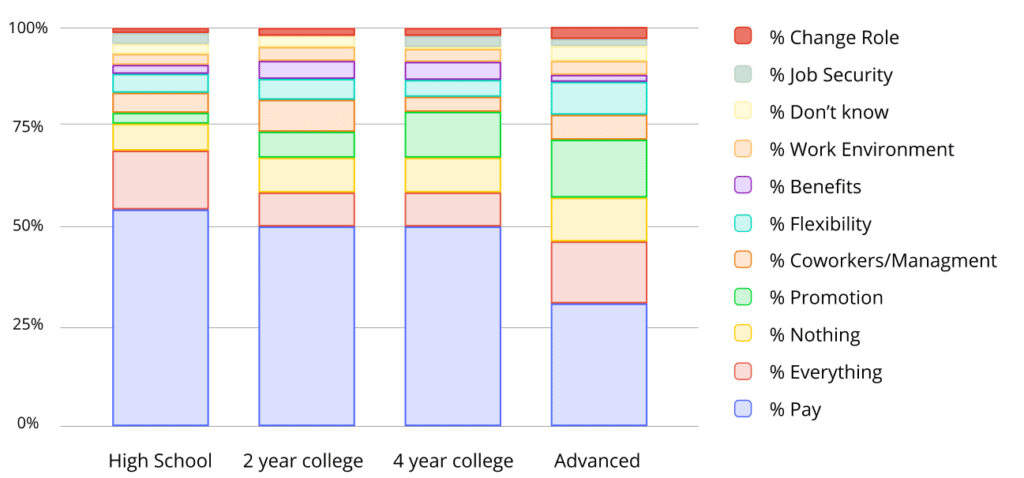
Figure 6: Reason to Stay by Educational Attainment
On average, workers with advanced degrees are less likely to stay in their position because of pay (29.85%, compared to an average of 50.88%), but more likely to stay because of a promotion (13.43%, avg. 7.64%) or flexibility (7.46%, avg. 5.17%).
This could suggest that those with advanced degrees have a longer-term focus on career motivations.
Conclusion
Contact center workers are a highly diverse group, coming from all backgrounds and industries, and each with its own motivations. Our survey demonstrates that above all else, contact center workers are primarily motivated by their pay. In a time when conversations about worker pay are especially salient, this is unsurprising.
Other motivations, such as a supportive work environment or promotion opportunities, can also make a significant difference in attrition rates — especially when contact centers cannot budge on pay rates. Contact center leaders should also pay attention to the other factors that impact their workers and should not assume that one motivation has the same impact on every demographic.
Click here to subscribe to future Conversation Excellence Lab reports.
Sources
Balto. (2022, March 29). Contact Center Attrition: What Agents Want in 2022 – Balto Ai. RSS. Retrieved February 1, 2022, from https://www.balto.ai/research/contact-center-attrition-2022/
Cite this report
Balto. (2022, February 1). Key Factors to Agent Retention: Career Motivations in the Contact Center – Balto Ai. RSS. Retrieved from https://www.balto.ai/research/key-factors-to-agent-retention/






